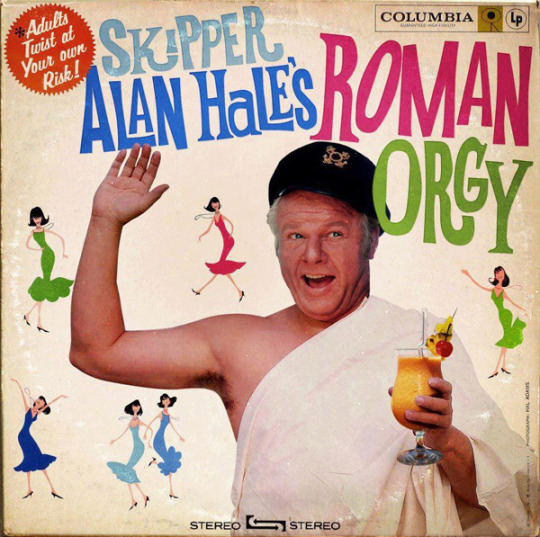Being the most excellent and accurate account of Game Night, held monthly at an undisclosed location in a major midwestern railroad hub.
Monday, February 27, 2017
Saturday, February 25, 2017
Friday, February 24, 2017
Thursday, February 16, 2017
Tuesday, February 14, 2017
Largely based on an accumulation of data
 |
| Pretty Boy Floyd and friends |
But to live outside the law, you must be honest - Bob Dylan
The structure to sustain this detente is not politically very deep. A little unexpectedly, certainly to the Clinton campaign, the Republican electorate was shown to respond to the feelers toward Putin. Perhaps, having canonized Reagan as he who destroyed the USSR, they are immune to the re-demonization of Russia so soon afterwards. There is also the western fascist infatuation with Russia. For whatever reason this has taken hold in Trump's worldview its representation on his staff is few in numbers but very central. And now the attack on this policy has drawn first blood.
Trump began his campaign with few political friends. His focus was on building an audience more than a movement. He has entered the White House with, still, few political friends. This explains the motley makeup of his cabinet. It also explains the slow pace of political appointments below the cabinet. The further down they go the less they will reflect Trump and the more they will consist of generic Republicans. The firing of Flynn for lying to Pence is the beginning of the rollback of the Trump brand of empire.
I love a good man outside the law, just as much as I hate a bad man inside the law. - Woody Guthrie
Friday, February 3, 2017
Wednesday, February 1, 2017
The Lesson of Germany
The ruin of bourgeois society in Germany is so colossal in its scope, so logical in its development, and so embracing in all its ramifications that it forms a characteristic microcosm of bourgeois as a whole at this stage of its decay. We shall attempt here to point out a few of the outstanding features in so far as they enable us to understand our enemies more clearly.
Nazism was not in essence German. It was in essence capitalistic, bourgeois. In as much as it reached its most finished expression in Germany the appearance it presented to the world was German. But it was the representative of capitalism in our day, and not only of German capitalism but of all capitalism. There must not be the slightest hesitation or confusion about this.
After ten years of the Weimar Republic the German bourgeoisie wanted above all things capitalist order in Germany. No advanced nation could continue to live as Germany had lived between 1914 and 1921, in continuous crisis, and as it had begun to live again after the crash of 1929. Naturally the German bourgeois and the Junkers did not want Fascism. I hey preferred to rule themselves without these upstarts. They couldn’t do it. The old bourgeois ideology was exhausted. It could hold the nation together no longer. The bureaucracy, police and arms of the democratic state could no longer be depended upon to maintain order. The Fascists supplied a new ideology and a new coercive force. Behind all the Swastikas, the worship of Odin and of Thor, the outstretched hands and the Heil Hitlers, the persecution of the Jews, and all with which the world is familiar, there must be kept in mind the one central principle of Fascism – the destruction of the organised working-class movement. That was German Fascism. The German bourgeoisie had no choice. To understand this, and to give it its full value, is not to make excuses for the capitalists of Germany. It is in reality to become more fully aware of how necessary it is that bourgeois society be wiped off the face of the earth.
From 1918 to 1933 the German nation was going to pieces. Between the irreconcilable interests of the capitalist class and those of the working class, the economy, the social system and the political life of Germany were not only in decay: gangrene had set in.
The only cure was the knife and the German bourgeoisie applied it. The fascists sought power, power to rule and to bring order into disintegrating Germany. They got it. They did not have to fight a civil war for it. The bourgeoisie and the Junkers gave it to them. The petty bourgeoisie gave them mass support. The Social-Democracy and the Communists capitulated shamefully. Unlike Franco, who inherited a country ruined by civil war, the Nazis got hold of a Germany that was economically more highly developed than it was in 1918. They had every opportunity to show what they could do.
We are accustomed to saying loosely that the European bourgeoisie not only welcomed Hitler but helped him to achieve power. That is a half truth. They were the chief architects of his success. They made him from the ground up. His rise appears to be the most spectacular in modern history. Yet a truly historical and realistic view will see him, far from being an Odyssey of individual will and achievement, no important career has been so essentially a social phenomenon. Comparisons with Napoleon are the fruit either of ignorance, stupidity or criminal intention. The young Bonaparte was sent to Italy as any number of voting generals were sent to fight the campaigns of the hard-pressed Republic. The “lightning in the hills” of the Italian campaign revealed to Europe that a military genius of the first magnitude had arisen. This military star displayed diplomatic genius as well. He was a European figure when he began his bid for power. Hitler’s career was the exact opposite. In 1923 he was nobody. Yet one year later he was attempting to capture Bavaria, being aided by the German hero of World War I, Ludendorf. The plotters believed that they had the support of the Bavarian military and governmental authorities and it is reasonable to believe that they had good cause for thinking that they did. His treatment in jail proved that. His hundreds of thousands of storm troopers represented an enormous expense. They were thugs hired by the German bourgeoisie to fight its battles against the working class. In the years 1930–33 the German bureaucracy engineered election after election. Through the system of proportional representation no government could find a sufficient majority to rule and by this means the bureaucracy and its masters hoped to discredit parliamentary government and open the way for authoritarian rule. Despite his immense influence over the petty bourgeoisie, Hitler, by 1932, was on the wane. The German bourgeoisie deliberately maintained Nazism to have some power in reserve against Bolshevism. True, he dominated them afterward. We do not mean for one moment to deny the energy, the inventiveness, the will, the tenacity of Hitler and the other Nazi leaders. We do not deny their skillful use of social contradictions. He himself was obviously a born leader of men and an orator the like of whom Europe has not often seen. But from the time he began, the German bourgeoisie, the military caste, the bureaucracy, all built him up and without their active conscious support he would have been nothing.
The working class will do well to ponder over these questions, to lay the responsibility where it lies, to see Hitlerism for what it was, a defense of bourgeois society in which all the bourgeoisie participated to the best of its ability. The way it has fawned upon Stalinism and covered up its crimes, the way it is now getting ready to turn upon Stalin if necessary, proves, if further proof were necessary, how self-motivated, how hypocritical are its cries about barbarism and the defense of civilization.
Everywhere it is the same. It sponsors the blood-stained regimes of Franco, of Chiang Kai-shek, of Peron in Argentina and Vargas in Brazil. Terror, murder, blood, persecution, wholesale robbery and innumerable lies – these are the weapons with which bourgeois society maintains itself. So deep-rooted is the decay, so all-pervading, that the democracies are compelled to build up these iniquitous regimes on one day and then set out to destroy them on the other. The workers of the United States in particular must see and learn. The time is coming when the American bourgeoisie will be driven into the same hole that the German bourgeoisie found itself. To escape the power of the workers there is no criminality which it will not embark upon to save its hide. The barbarism which descended upon Germany in 1933 will have its American counterpart because it was not German but capitalistic, capitalism fighting its war of survival. In saving itself from capitalism the American working class will save not only itself but the whole nation.
All quotes from "The Lesson of Germany", May 1945, C.L.R. James (as J.R. Johnson)
Subscribe to:
Comments (Atom)









